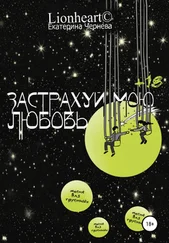As we moved further south, the air became milder. Clouds heavy with rain from the Western Sea rolled over us almost every day. Occasionally, the wind veered round and brought cold air from the east, much like an English winter. The dark days of November and December rendered our surroundings grey and flat, but it was easy to imagine how different it would be in the spring and summer, especially amidst the countless rows of vines and fruit trees. They were dismal and bare now but would be verdant and full of promise in just a few months’ time.
Saintes was brimming with pilgrims when we arrived. Every inch of the nave of the great Church of St Eutropius was covered by a sea of humanity. They had travelled from the distant corners of Europe to make their way, ponderously but faithfully, to the shrine of St James the Great, in Galicia, and they still had months of travel ahead of them. The nave was more like a marketplace than a church. Traders sold their wares, buskers performed, and even the harlots were allowed to flourish. The monks kept a watchful eye – especially over the privies, which were a source of much stench and not a few arguments as the queues grew from early morning.
Sadly for our mission, Duke Richard was nowhere to be found in Saintes, nor was he in its vicinity. A week earlier he had left for Bordeaux with his army. Having pacified large areas of the Limousin and Angoulême, it was now his intention to bring to heel Gascony and Navarre, the land of the Basques.
Duke Richard’s reputation preceded him. We heard reports that he was ruthless with any recalcitrant lord who refused to submit to him. It was said that if a siege was necessary, his strategy was an unrelenting attack by missiles and fire, supplemented by a scorched-earth policy to induce starvation and a final, brutal assault on the walls of the castle or city.
When victory or submission had been achieved, as was invariably the case, he was harsh with those who opposed him. But he was magnanimous with the garrison which had fought him and generous with local inhabitants, often insisting that their lord pay them a handsome sum as part of the peace settlement. There was little wonder that the sobriquet ‘Lionheart’ was so widely attached to his name.
When Father Alun told me that we would be travelling as far south as the towering Pyrenees, I was curious, especially after he offered me a quote from a new Guide for Pilgrims , which had just been made available for wealthy travellers. It could be read – by those who had sufficient Latin – at the great monasteries along the Way of St James, from as far away as Paris, Geneva and Turin.
The Gascons are gossipy, licentious and poorly dressed. They eat and drink too much, but not at a table, rather they squat around a fire and share the same cup. When they sleep they share the same rotting straw, master and mistress, servants and all. The Basques and Navarrese are much like the Gascons, only worse! They all eat out of one big pot like pigs at a trough and when they speak they sound like dogs barking. They warm themselves in front of the fire by lifting their kilts and are not afraid to display their genitals for all to see. They treat their women like mules and fornicate with animals. In fact, so jealous can they be of their favourite mares and mules, they have been known to fit them with chastity belts.
I was amused by this account; indeed, it reminded me of our English prejudices about the Scots.
When we finally caught up with Duke Richard’s army outside the walls of Bordeaux, it presented a disconcerting impression. Led by a motley group of lords and knights from many parts of King Henry’s empire, it was largely composed of Brabançon mercenaries from the Low Countries and the bordering German principalities. Fierce and ill-disciplined, and clearly only interested in the spoils of war, they were the antithesis of the professional soldiers I had trained and fought with. By the look of them, there was no doubting their ability to fight; what was more questionable was their loyalty to anything other than their own self-interest. Indeed, they were the kind of men towards whom it would be unwise to turn one’s back – unless provided with adequate protection from comrades who could be relied upon.
Large, gnarled, unkempt, scarred, fearsome and formidable were just some of the words that sat well with them. They carried a range of weapons and armour, both conventional and unusual, but all designed to inflict maximum harm on an opponent. They wielded swords of varying designs and lengths, axes, clubs and maces and a multitude of spears, javelins and lances, some longer than a man.
Many of them were sappers and siege engineers, skilled in designing and building a range of ballista, all vital to the successful execution of siege warfare. The archers and arbalests formed separate elite forces, each of which was dedicated to a peculiar fusion of deadly accuracy aligned with brute strength. The two groups of bowmen did not mix – in fact, each was contemptuous of the other. But their two contrasting trajectories, used in parallel in battle – one slower but toweringly high, the other flatter but speedier – made a crushing impact on an enemy.
I counted a force of around seven hundred men. It was not a huge army, but clearly an efficient one.
The Earl sat high in his saddle as he surveyed the scene. The army had made camp, but it was a disorganized muster of tents. Horses were picketed in small groups, and field kitchens were scattered everywhere. Latrines were notable by their absence, the River Garonne seemingly offering the only sanitation. Earl Harold glanced at Father Alun, then surveyed the surroundings with a look of contempt.
‘What a buggers’ muddle! It is to be hoped they are only besieging small garrisons of burghers and merchants. In open battle in the field, this rabble would be cut to pieces.’
The Earl was right. As individuals or in small groups, these were formidable men, but together, they were an army in name only.
We rode right up to Duke Richard’s tent unchallenged and were only asked to name ourselves after we had dismounted and were within ten paces of his standard, which was flying stiffly in the westerly breeze. Godric spoke to the Duke’s standard-bearer in Norman.
‘Tell your lord that he has guests.’
‘And who might they be?’ was the curt reply.
‘An Earl of England and his men.’
The man pulled back the canvas door of the tent with a flourish and disappeared inside. He had not saluted Earl Harold, nor had he proffered a courtesy of any sort. The Earl looked down at the ground, clearly unimpressed. The rest of us shuffled uneasily, embarrassed that our ageing lord had been unacknowledged and left standing outside the Duke’s tent.
It seemed like an age passed before a dishevelled knight emerged from the tent. He looked flustered and had hardly finished adjusting his armour and clothing. He blinked in the bright light and bowed to Earl Harold.
‘My Lord, Duke Richard asks if you will join him in his tent. He is on campaign, sire, so begs forgiveness for our frugal appearance.’
Earl Harold stepped forward and beckoned to Father Alun and myself to follow him.
‘Worry not, Sir Knight, in my lifetime I’ve seen the inside of enough campaign tents to house a multitude of armies.’
Duke Richard’s tent was, despite the caveat, remarkably luxurious. Although the interior was dark and musty, the walls were richly decorated with embroideries, and thick oriental carpets covered the floor. Incense hung in the air, together with the odour of attar of roses and perfumed candles. It was more like a lady’s boudoir – and a lady of dubious repute at that – than a general’s campaign tent.
The sounds of splashing water, female laughter and male merriment wafted from behind a curtain at the back of the tent. The Duke was obviously entertaining young women, even though the hour had barely passed midday. Once again, the Earl looked displeased.
Читать дальше












